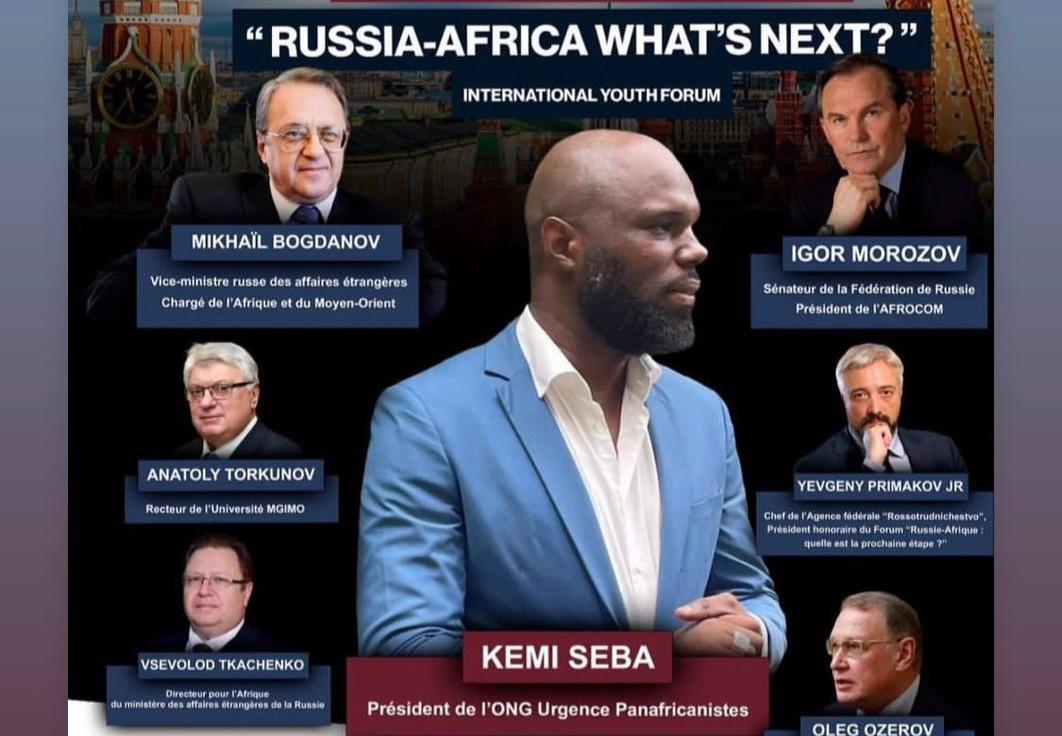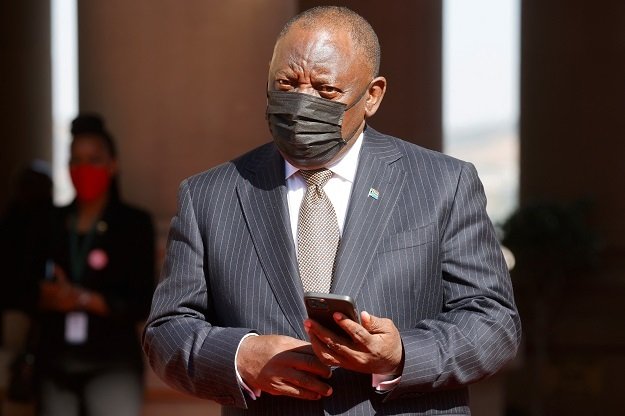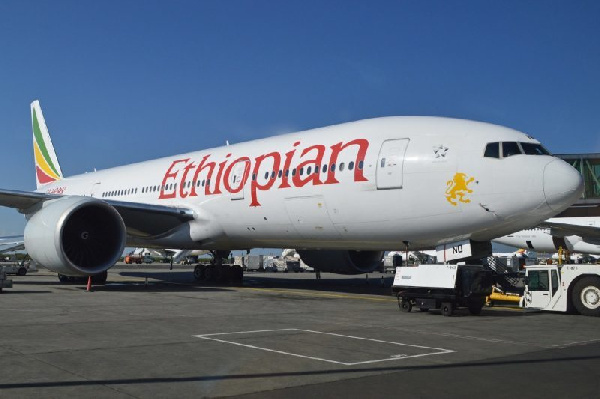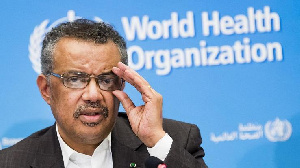News Africa
Russia-Africa: What Next? Speakers question at the 3rd MGIMO University’s Youth Forum

The 3rd International Youth Forum ‘Russia-Africa: What Next’ organized by the Moscow State Institute of International Relations (MGIMO University) has attempted to review and reassess achievements and challenges in contemporary Russia-Africa relations within the context of global geopolitical changes. Most of the Russian speakers pointed to neo-colonial relations in the economy and politics, shifted blames largely on Western practices for under-development and various persistent ethnic conflicts in Africa.
But the speakers also highlighted that not all that is negative in Africa, pointed to the fact that Russia has recently intensified its partnership with Africa. It generally values the independence and sovereignty of African countries. Deputy Minister and Special presidential envoy for the Middle East and Africa, Mikhail Bogdanov noted that “the African continent is a dynamically developing part of the world with an enormous growth potential, attractive domestic market and expanding export prospects”
Bogdanov stated that over recent years, Africa “has been confidently bolstering its international clout, increasingly asserting itself as an influential player in global politics and one of the centers of the multipolar world order being shaped. Considering all these factors, it is quite natural that Russia attaches special significance to building a long-term and beneficial partnership with Africa, as we have much in common, from traditions of joint anti-colonial struggle to a similar vision of many key contemporary problems.”
Some experts say Africa has the possibility of raising its geopolitical importance, but the continent must overcome several daunting challenges. Meanwhile, Sub-Saharan Africa’s debt crisis shows no signs of abating. A number of French-speaking West African countries have come under military rule, and majority of the countries in Africa are bogged down with how to utilize their tremendous resources to uplift economic development and work towards expected growth. The speakers however suggested Africa has to adopt drastic measures including promoting growth-enhancing reforms and to place development paradigm on track.
While acknowledging Africa’s role on the international stage, its immense economic potential and the huge endowed resources, Russia partly blamed African leaders for their own weak development policies, lack of transparency and accountability. What’s particularly interesting in Africa is the level of attitudes and approach in addressing fundamental structural issues (the need for economic transformation and modernization), combined with the general perception that development can only be carried out with external forces.
Speakers made constant reference to the fact Russia primarily aims at supporting Africa to achieve sustainable economic growth, intensifying multifaceted and diverse efforts to ensure peace and stability in the continent. Since the first African leaders summit, there has not been any significant shift in the economy despite several bilateral meetings and that of joint Russian-African economic commissions, and therefore Russian prospects to undertake large-scale investments still remain bleak across Africa.
At the second Russia-Africa summit held in St. Petersburg in July 2023, several bilateral agreements were signed with and pledges were offered to entrepreneurial and investment partners intended to create a better future relations in the spirit of lighting up a greener Africa. Notwithstanding that, it further offered high hopes as African leaders claimed Russia would continue to battle growing neo-colonial tendencies which has been an obstacle in the continent’s development and progress.
After three decades of being inactive on the continent, Russia now has the desire to strengthen its geopolitical influence. It all began after the impressive first group of African leaders in Sochi whose focus directed at enhancing constructive cooperation and advancing integration processes within the framework of the African Union and a number of sub-regional structures. Sochi summit was under the motto “For Peace, Security and Development” which attracted the African representatives. The same theme was repeated for the second summit in St. Petersburg.
According to official documents, there were a total of 569 working meetings that resulted in 92 agreements and contracts signed as part of the first summit. That summit, more or less, opened a new page in the history of Russia’s relations with Africa. Sochi witnessed a historic final communique, and impressive pledges and promises made in various sparkling speeches and during indepth discussions. Understandably, St. Petersburg’s gathering was (i) first to review concrete achievements and (ii) second to examine thoroughly strategic ways to further promote Africa’s large-scale development.
The logic behind MGIMO (University) youth conference, as reflected in this article headline, was to set concrete tasks for the future. But this has to be done by looking back at what has been achieved during the past few years and within the context of current geopolitical changes. One significant achievement, so far, is the widespread Russia’s anti-Western propaganda across Africa. Unlike China, it has used the media to disparage Western concepts, twists Africa’s public opinion against the West and to (re)entrench itself by offering increasingly ostentatious investment projects without disposition of much-needed financial and logistic resources in the key-sectors it has shown interest in Africa. As a well-known fact, China has used most opportunities provided by the intensive globalization process to extend its presence and to consolidate its soft economic power in Africa. China supported, to a large comparable degree, noticeable countless infrastructure including those in the areas of transport, health, sports and education, and construction of major public buildings in Africa.
On 24th April 2024, Foreign Minister Sergey Lavrov’s video message to the participants at this 3rd international youth forum ‘Russia-Africa: What Next?’ held by the Moscow State Institute for International Relations (MGIMO University) portrayed an indication as one of the key platforms for promoting youth dimension in Russia’s cooperation with African countries. The signal, therefore was that, Russia-Africa relations can be complemented by the youth groups and, of course women, which Russia has seemingly under-estimated, instead recognized as exclusively state-to-state and tightly-fenced at level of governments.
Russia has often failed to capitalize on historical connections between Moscow and African elites who had been educated in the Soviet Union and now Russia. Previously, youth and women have not formed part of its agenda, thus these groups are remote from the practical Russia-Africa relations. Russian officials have little interest in leveraging, incorporating them into people-to-people and public diplomacy.
Moreover, Lavrov believes the mission involves supporting efforts to implement the agreements resulting from the second Russia-Africa summit in St Petersburg. This meeting, at the highest level, laid a solid foundation for generating steady momentum in promoting multifaceted ties between Russia and Africa in the near future. The summit’s outcome documents, the Declaration and the Russia-Africa Partnership Forum Action Plan 2023–2026, set forth the converging approaches on these matters.
Lavrov made reference to the updated Foreign Policy Concept, approved by President Vladimir Putin on 31st March 2023, in which one of the unquestionable priorities today is to forge lasting strategic partnerships with African countries. For the purpose of this article it was necessary to dig out this document. The logic of the document reflects the changing geopolitical realities. The new concept says Russia stands in solidarity with the African states in their desire for a more equitable world and elimination of social and economic inequality, which is growing due to the sophisticated neo-colonial policies of some developed states towards Africa.
According to the document, the Russian Federation intends to support further the establishment of Africa as a distinctive and influential centre of world development. Its priority here is Russian-African cooperation in various spheres on a bilateral and multilateral basis, primarily within the framework of the African Union and the Russia-Africa Partnership Forum.
The 42-page document consists of six sections and a total of 76 paragraphs. The previous version of the concept was adopted in November 2016. The Ministry of Foreign Affairs of the Russian Federation published on its website the text (in English, Spanish, and French) of the Concept of the Foreign Policy of the Russian Federation, approved by Presidential Executive Order No. 229 of March 31, 2023.
Without mincing words, Lavrov explained that Russia views the African continent as a global centre with its own unique identity in the emerging multipolar global architecture. That African friends have made great strides in their national development is a source of great satisfaction for Russia. This is largely attributable to proactive youth engagement in political, economic and humanitarian processes. Russia reaffirms its commitment to helping African countries strengthen their sovereignty and security in all aspects and dimensions.
“We will keep up our proactive efforts to promote capacity building in African countries, including by increasing the number of scholarships we award, as well as by opening branches of Russian universities and schools across the continent, and developing a network of open education centres,” Minister Lavrov emphasized in his message.
In his address to the Federal Assembly of the Russian Federation on 29th February 2024, President Vladimir Putin referred to the Russia-Africa summits as “a genuine breakthrough” but a lot of more work lies ahead. In this context, the workload here requires creativity and energy, as well as the ability to search for and come up with some practical solutions when addressing existing challenges in the relations between Russia and Africa. Despite the setback and obstacles, Lavrov with optimism concluded: “I am certain that these meetings will bring about tangible results and will serve as an informal networking platform for engaging in insightful discussions and establishing mutually beneficial contacts for the future.”
Over the years little has happened from Russia’s side. Several delegations have visited Africa and on the other way around. And African delegations keep moving forth and back to Moscow and to the Kremlin. President Vladimir Putin is yet to visit Africa, not Egypt and not South Africa. Taking the lead, Dmitry Medvedev’s official working visit to Africa in June 2009 was considered an important step to shift Russian perceptions of the continent. That trip absolutely has very little significant impact, even until today. Medvedev was accompanied by 300 business-people, inspired to talk to African counterparts about how they can share expertise and resources, to collaborate in investment sectors. But bilateral cooperation is a two-way street, and it is not about charity as African leaders think. While Russia struggles to expand its trade relationship to a higher level, African leaders negotiate for nothing as they already have their traditional United States and European markets – source of revenue to their state budgets. In fact, Russia still staggering and lags far behind its BRIC partners in terms of bilateral trade with Africa.
Both Russian and African experts in separate interviews and conference sideline discussions say Russians are only counting on the Kremlin and the officialdom to drive all aspects of diplomacy, but if it is structured as such, over reliance on the state, Russia-African socio-cultural and entrepreneurial relations can be ineffective. That’s why people’s socio-cultural and youth interactions have been so horribly poor. Naturally, it necessary to encourage frequent short-term travels and holiday-visits to Moscow and African cities. In this emerging multipolar world with emphasis on simple tenets, principles and conditions such as interactiveness Russia is segregated from Africa.
Under the patronage of MGIMO University Rector Anatoly Torkunov and Russian Presidential Aide Andrei Fursenko, the 3rd youth forum, held late April 2024, discussed the political aspects of African countries, energy issues and economic cooperation between Russia and Africa. On the agenda was Russia’s cooperation with the African continent in the field of mineral resource management, partnership through the prism of BRICS (Brazil, Russia, India, China and South Africa) and many other pressing issues. In addition, the forum hosted several brainstorms and country case studies. It provided an opportunity to foster understanding and round-table discussions with participation of political figures, the academic and scientific community, diplomats, well-known experts and guests from Russia and Africa.
Similar youth conferences devoted to African students activism, promoting youth entrepreneurship and facilitating dialogue on a specter of targeted policy initiatives between Russian and African youth in this emerging multipolar world also took place in a number of cities such St. Petersburg, Ekaterinburg and Kazan in the Republic of Tatarstan.
Russia-Africa: What Next? Sochi will host a special ministerial conference of the Russia-Africa partnership forum on 11th-12th November 2024, bringing African leaders, academics, corporate business representatives to facilitate exchange of opinions and those from the Africa Union (AU) and African regional organizations purposely to design ways of tackling projects and to address the implementation of concrete decisions reached at the second Russia-Africa summit, according to Russian Foreign Affairs Ministry.
Source: Thepressradio.com| Kestér Kenn Klomegâh





